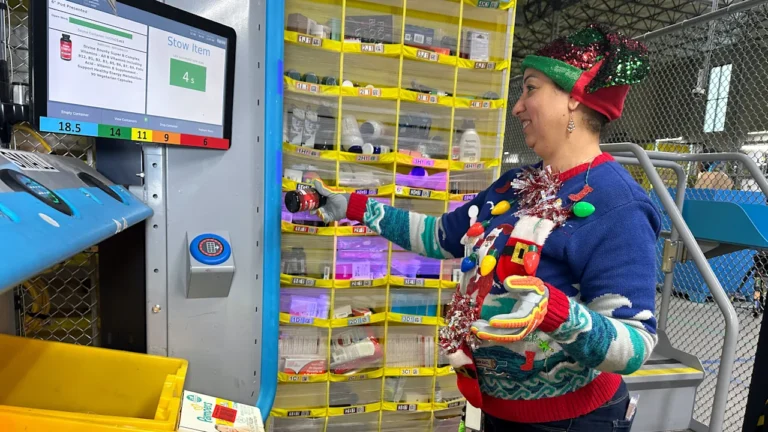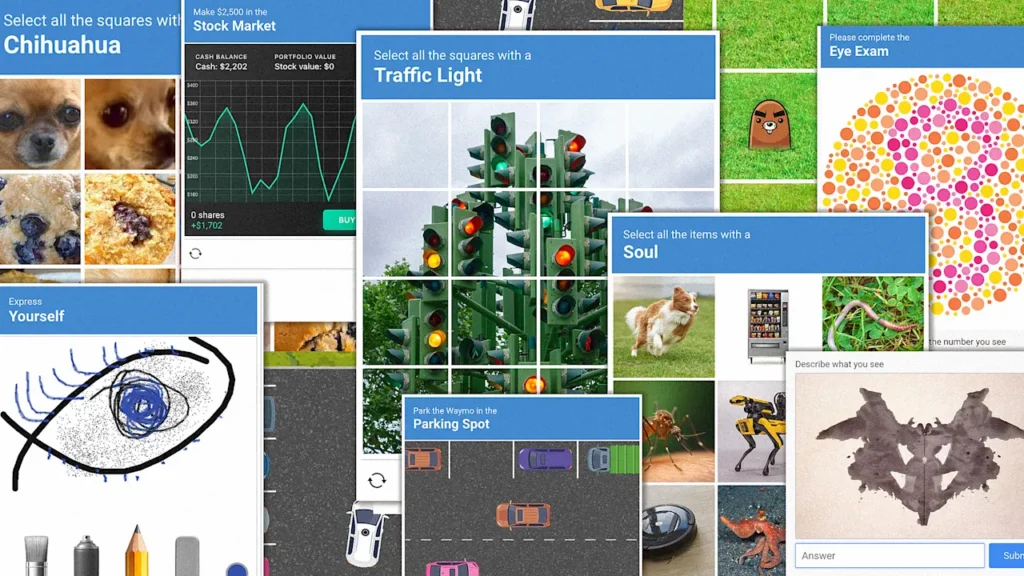
Are you human? A new game wants you to prove it.
I’m Not a Robot is a fun spin on the popular CAPTCHA game synonymous with using the internet. Except it’s not just one game, but 48 increasingly absurd puzzles designed to help you prove you have a soul—and the patience to parallel park a Waymo using your arrow keys.
The game begins as you’d expect. Level 1 asks you to check a box to prove you’re not a robot. Level 3 prompts you to decipher text wiggling on the screen. But the more you progress, the whackier it all becomes. Level 11 asks you to find Waldo on a crowded beach. Level 17 wants you to use your mouse to draw a circle that is 94% accurate (it’s not as easy as it sounds.) Level 25 lets you play day trader at the stock market, and you must make a minimum of $2,500 by buying and selling stock based on a chart that dips and spikes live on your screen.
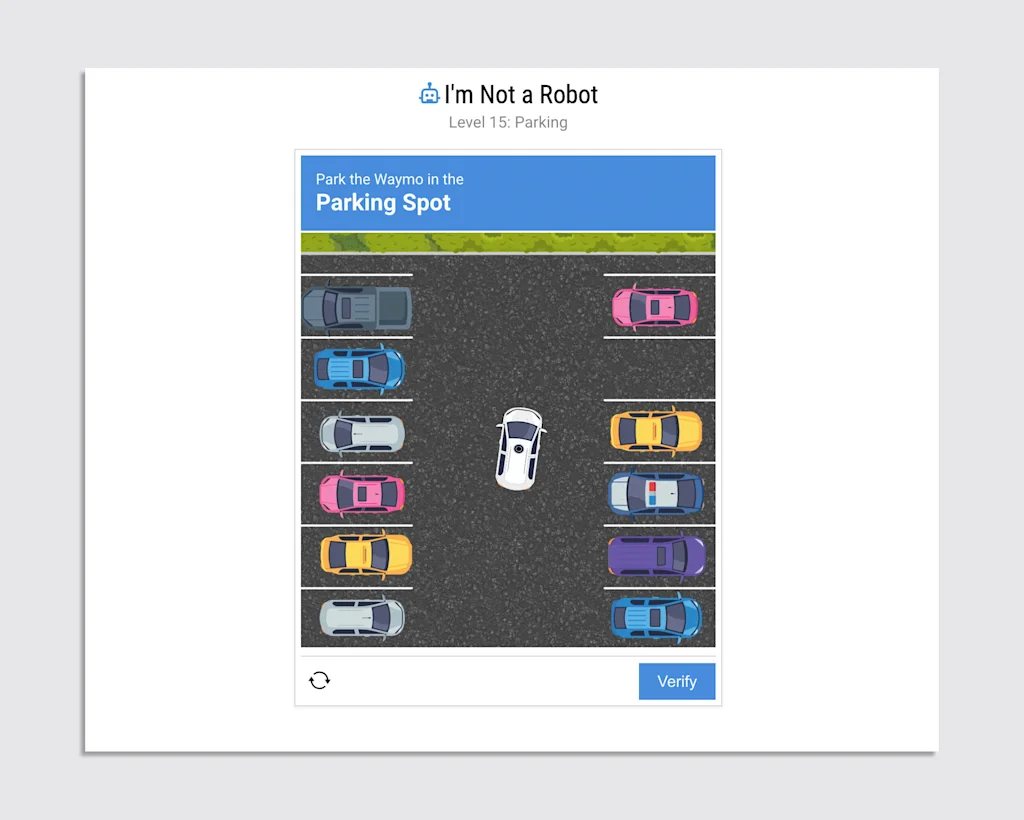
Since the game launched in September, it has been played by more than 2.5 million people. The game’s designer, Neal Agarwal, estimates it would take a whole two hours to complete all 48 levels: “That’s how hard it is,” he says. “I think less than 1% have completed it.”
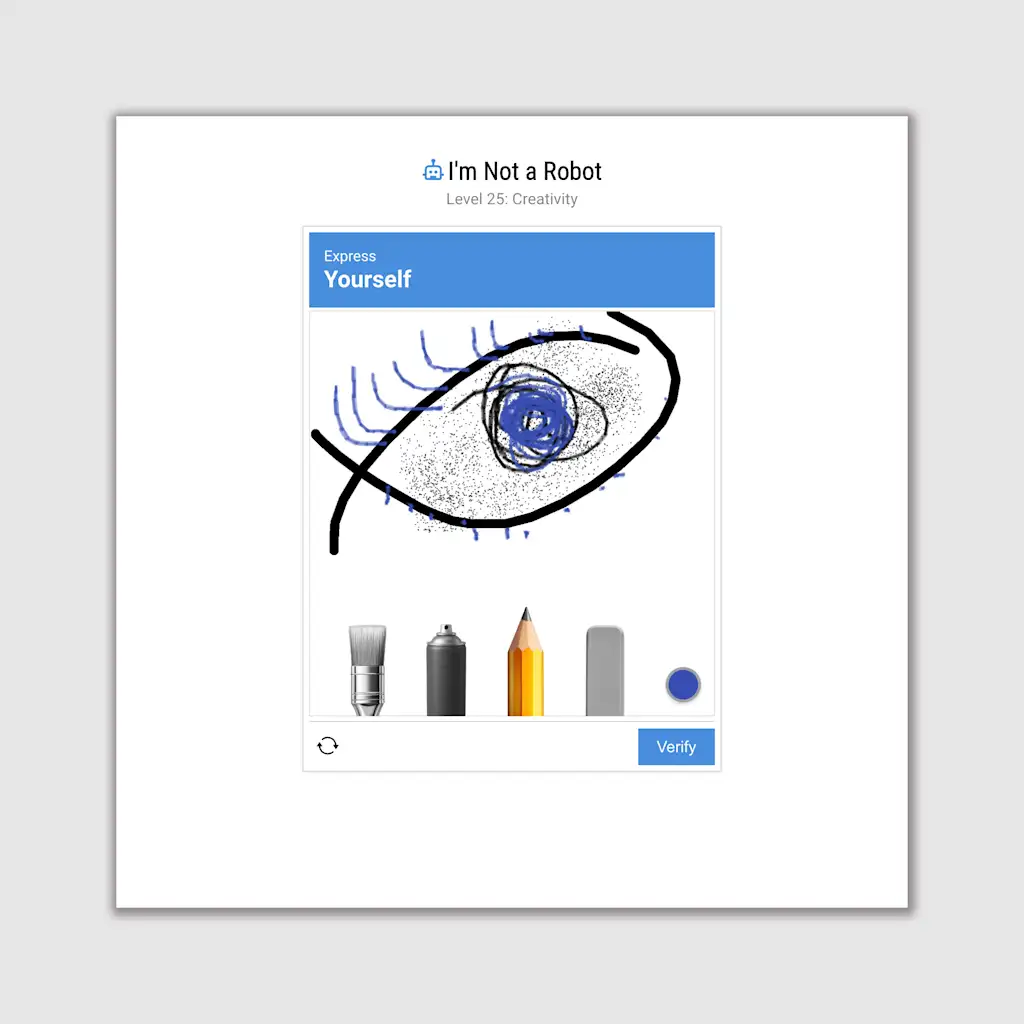
A brief history of CAPTCHA
CAPTCHA, which stands for Completely Automated Public Turing Test to Tell Computers and Humans Apart, was first developed in the late 1990s as a way to prevent automated bots from abusing online services. One of the first companies to implement it was the web search engine AltaVista, which used distorted text images that humans could read but computers could not, to stop automated URL submissions to its search engine.
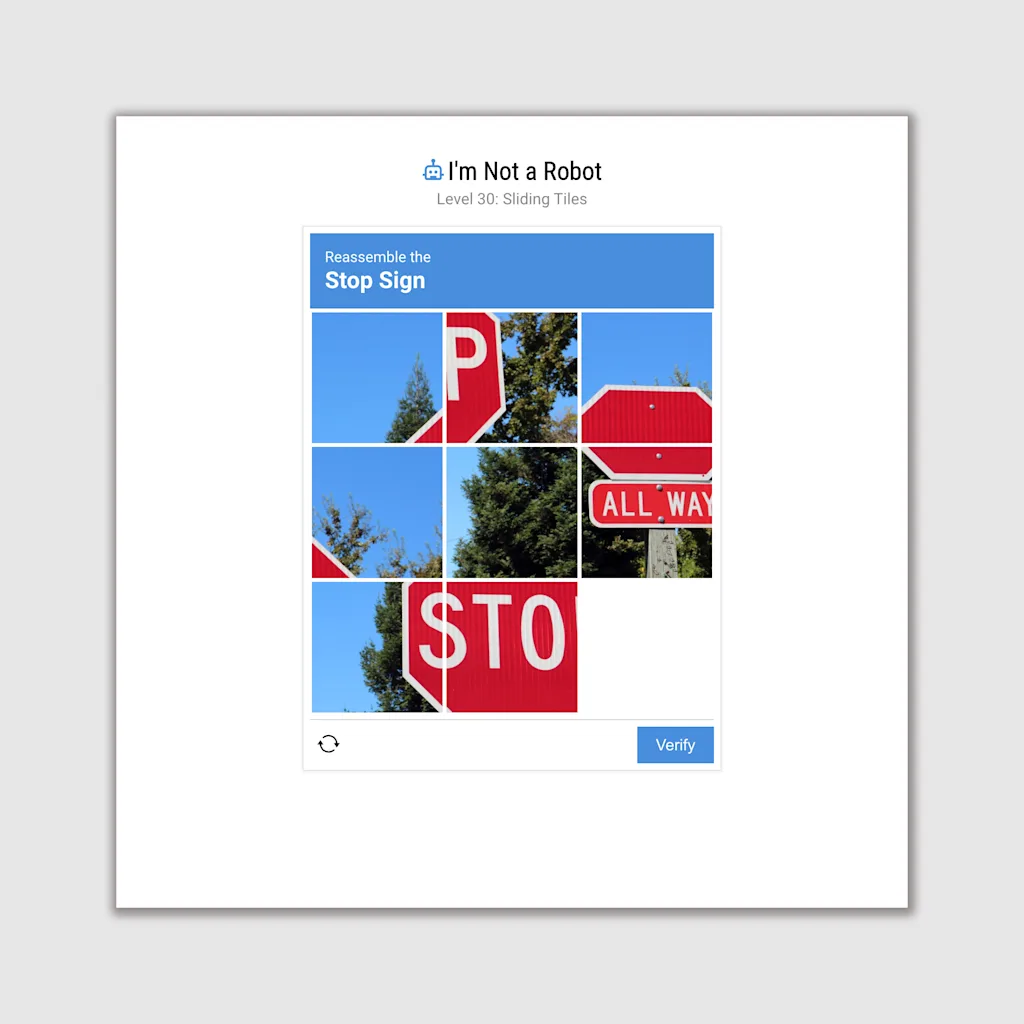
Hundreds of thousands of sites have adopted CAPTCHA over the years, including PayPal, Yahoo, and Google, which acquired the technology in 2009. Google then renamed the interface reCAPTCHA and started to show users scanned text from books and newspapers that computers couldn’t recognize, which turned into a digitizing platform as well.
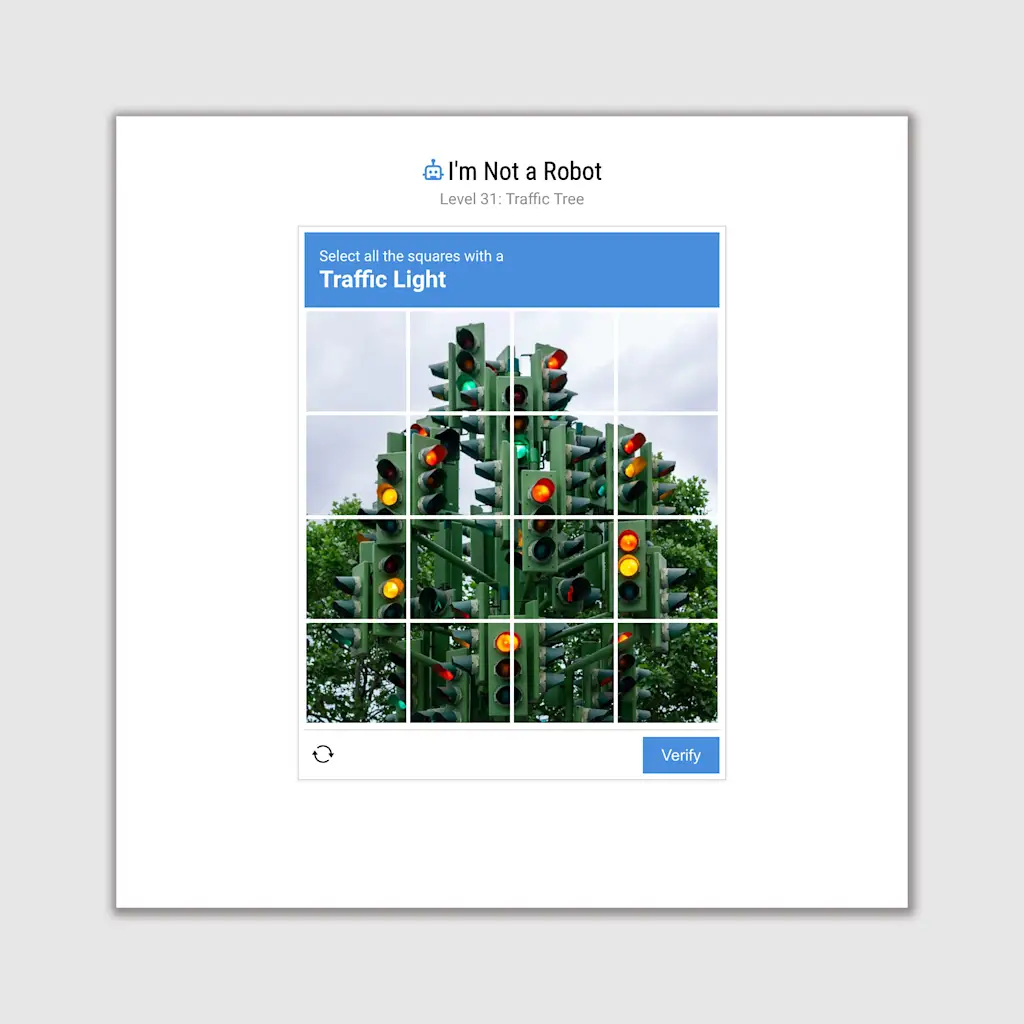
Agarwal, who keeps a list of more than 1,600 ideas for game designs, has wanted to design a CAPTCHA game for years, but it was the recent AI boom that really drove the idea home. “All these new AIs are coming out, and they are doing more and more things that traditionally only humans could do,” he says. “So how do you design a test that can only be solved by humans?”
According to a report from 2024, the number of bots has now surpassed the number of humans on the internet, accounting for more than half of global internet traffic. These bots flood social media with coordinated disinformation campaigns, manipulate online polls and product reviews, scalp concert tickets within seconds of release, and enable sophisticated fraud schemes that cost businesses billions annually. They also affect the efficacy of CAPTCHA games, which have grown from distorted text that humans had to decipher to increasingly elaborate image puzzles.
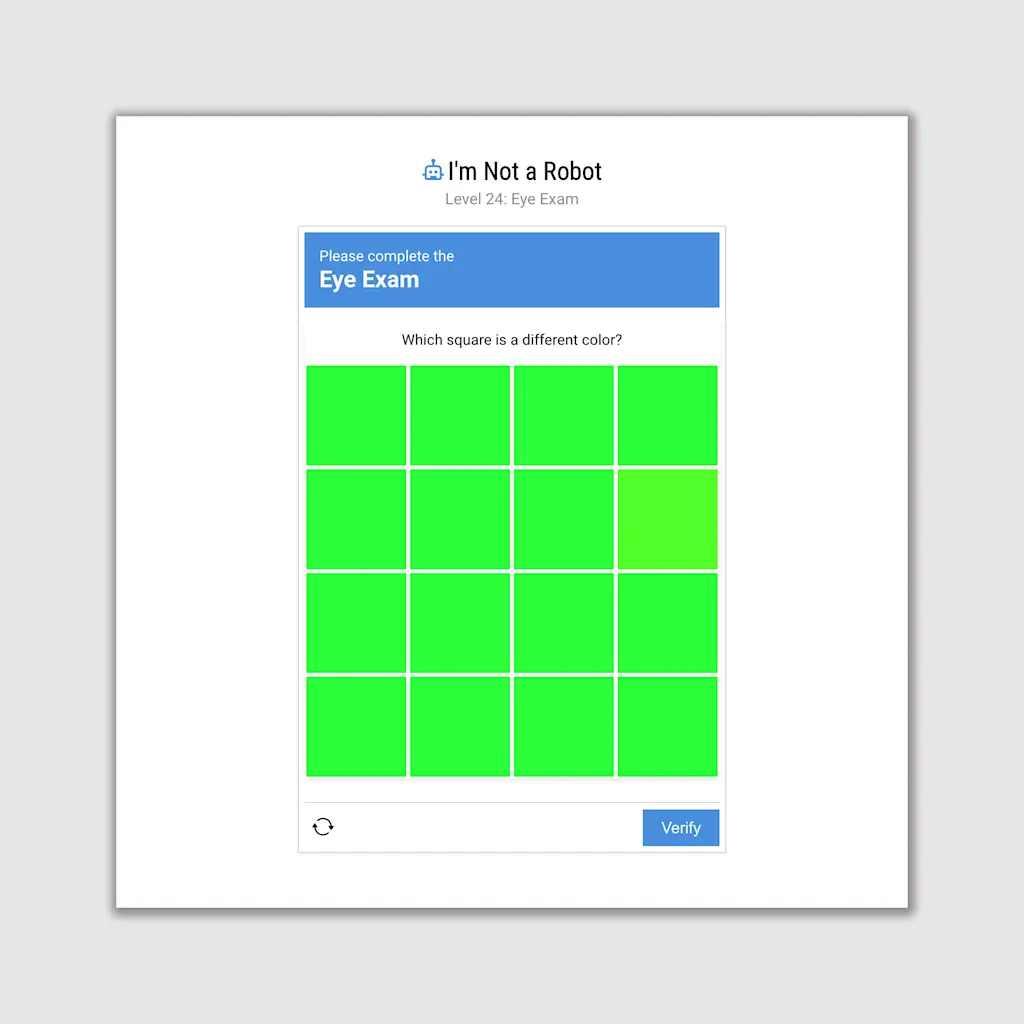
Who is the internet for?
Agarwal has a knack for games that double as social commentary.
His Password Game became a viral phenomenon in 2023, testing, as the site puts, “your password strength, your patience, and your will to live.” The Stimulation Clicker simulates the modern internet’s chaotic environment, bombarding players with overwhelming notifications, breaking news feeds, and various distractions that fragment attention. The Printing Money game made stark income inequality visible by turning hourly rates for various occupations, like a teacher and Fortune 500 CEO, into printing presses that stream dollar bills across the page as they’re earned.
I’m Not a Robot is extremely fun to play, but it also highlights, as Agarwal puts it, “the absurdity of how the internet was created for humans and now it’s half robots. Half the people we chat with aren’t even real, and it’s only going to get even more crazy.”
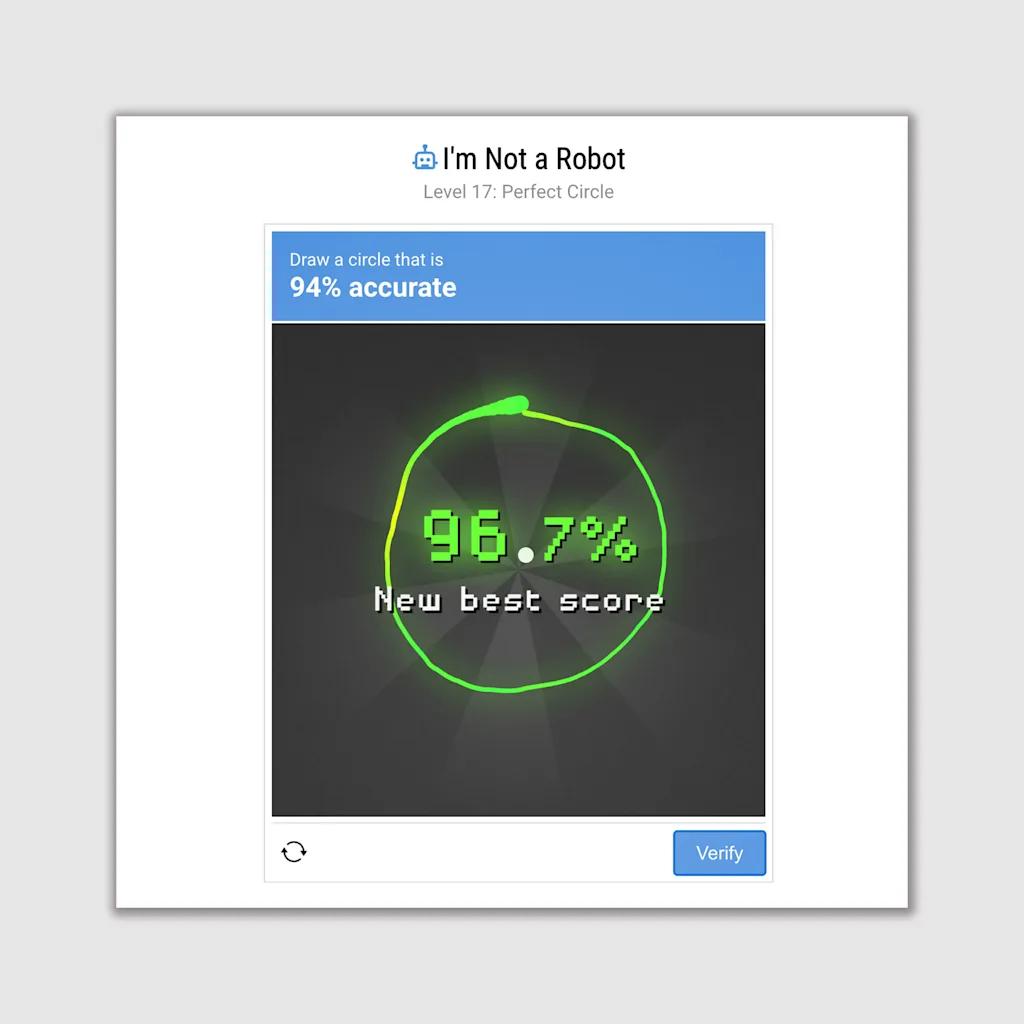
Earning your humanity
To make his point, Agarwal designed puzzles for I’m Not a Robot that require an increasing amount of brainpower to solve. One level asks you to break up with your AI girlfriend. Another is a full-on chess game. Another requires you to convince an AI that you’re human. The last level is a Dance Dance Revolution game you play with arrow keys. Agarwal says it’s proven very hard for people to solve.
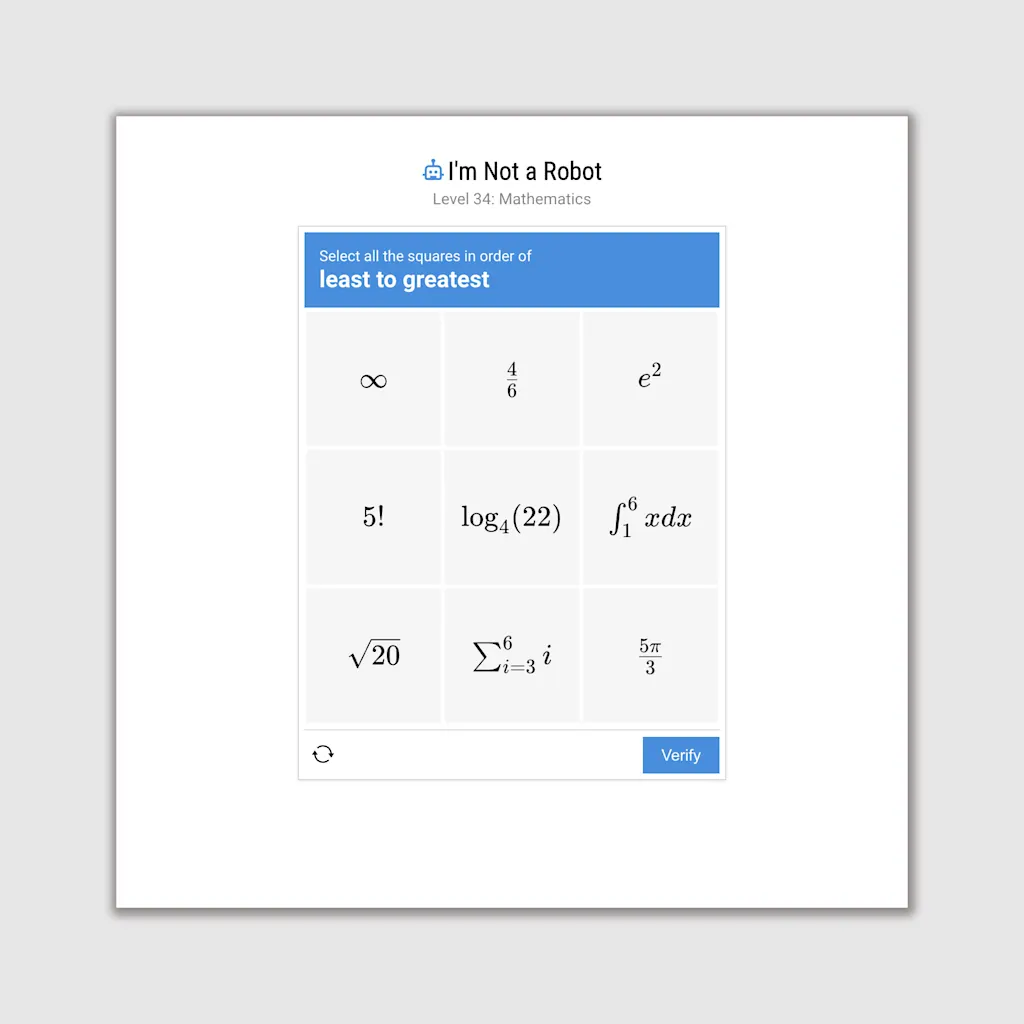
I myself am currently stuck on Level 24, which asks you to calculate the value of mathematical functions and sort them from lowest to highest. Considering the presence of logarithms, x’s, and a sigma, it has proven too head-cracking for my writerly brain, but for those who make it through to the end, Agarwal promises a certificate of humanity, and a surprise appearance by CAPTCHA founder Luis von Ahn, who went onto cofound Duolingo.
And yes, I could run the math equations through ChatGPT—or, god forbid, dig up my high school scientific calculator to advance to Level 25—but that would probably defeat the purpose of proving I’m human.

